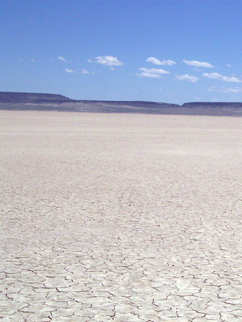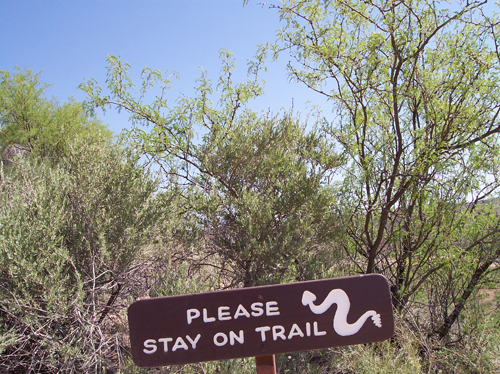Some experts say that snake bites are on the rise in some regions such as San Diego and Southern California, due to drought  conditions. Scarce water levels means low moisture content in plants, which in turn attracts fewer rodents, squirrels and rabbits — meaning less prey for snakes— so the vipers are on the move. Wildfires don't help the situation because habitat is disturbed, driving rattlesnakes farther into areas where there are more people. In addition to humans, more dogs have been bitten this spring, leading to more veterinarians giving snakebite vaccines to man’s best friend. And some reports indicate snake venom appears to be getting more toxic. This is worrisome to emergency room doctors who say it seems like vipers are packing a more deadly dose of venom than ever before.
conditions. Scarce water levels means low moisture content in plants, which in turn attracts fewer rodents, squirrels and rabbits — meaning less prey for snakes— so the vipers are on the move. Wildfires don't help the situation because habitat is disturbed, driving rattlesnakes farther into areas where there are more people. In addition to humans, more dogs have been bitten this spring, leading to more veterinarians giving snakebite vaccines to man’s best friend. And some reports indicate snake venom appears to be getting more toxic. This is worrisome to emergency room doctors who say it seems like vipers are packing a more deadly dose of venom than ever before.
Other experts believe snakes are not affected by drought because they’ve evolved in areas where droughts are frequent. Their explanation for the increase in bites is because rattlesnakes are more active as daylight hours lengthen. The sun signals their pituitary glands to wake up, get food and find a mate. One park service employee said, "It is like real estate: location, location, location. More people are out on forest trails in spring in summer as schools let out, which leads to more encounters with snakes."
Whatever the reasons, biologists and doctors said agencies need to post more signs explaining how to prevent snakebites. Too many people wear shorts and flip-flops instead of long pants and snake gaiters with boots or sturdy shoes. Also, going off trail and being unable to hear a snake’s rattle because someone’s wearing earbuds with music blaring adds to the possibility of getting bitten. There's a good chance you've been close to a snake while hiking and never knew it. A snake's camouflage allows it to blend into its surroundings. The can be tough to see, so stay alert.
If you encounter a rattlesnake, the way you act will likely determine the experience you have. Like most animals, rattlesnakes fear humans. Give snakes spac e, watch where you step, and watch where you place your hands when you sit down. Never hike alone, always carry a cellphone, and tell family members where you’re going ahead of time. If bitten, call 9-1-1. Stay calm. Don’t use tourniquets or try to suck out the venom. Get to a hospital as soon as possible. Although 25 percent to 50 percent of rattlesnake bites are dry bites (no venom), you won't know that when you are struck. Treatment for a rattlesnake bite can require up to four of five days in a hospital.
e, watch where you step, and watch where you place your hands when you sit down. Never hike alone, always carry a cellphone, and tell family members where you’re going ahead of time. If bitten, call 9-1-1. Stay calm. Don’t use tourniquets or try to suck out the venom. Get to a hospital as soon as possible. Although 25 percent to 50 percent of rattlesnake bites are dry bites (no venom), you won't know that when you are struck. Treatment for a rattlesnake bite can require up to four of five days in a hospital.
If you encounter a rattlesnake while hiking, it is recommended that you do the following:
- Remain calm. Do not panic.
- Stay at least five feet from the snake. Give the rattlesnake plenty of space.
- Do not try to kill the snake. Doing so is illegal in some states (Utah is a good example) and greatly increases the chance the snake will bite you. Most venomous bites happen when untrained people try to kill or harass a snake. Usually the snake is simply moving through the area, sunning itself or looking for a place to hide. If you leave the snake alone, it will leave you alone.
- Alert other people to a snake's location. Advise them to use caution and to respect the snake. Keep children and pets away.
It is a myth that smaller rattlesnakes give more venom than adult snakes, but no matter the age or size, rattlesnakes are the most dangerous snakes in the world because they actually inject venom into you. Other species may bite and it is a grinding bite. Rattlesnakes, however, have hollow teeth with venom glands that act like a plunger in a hypodermic needle. With months of hot weather ahead, the number of snake bite victims easily could rise, especially in areas with droughts and wildfires. These conditions send the vipers scattering for food, which could increase the likelihood of encounters with humans. The best advice is to be prepared. Wear snake bite protection.